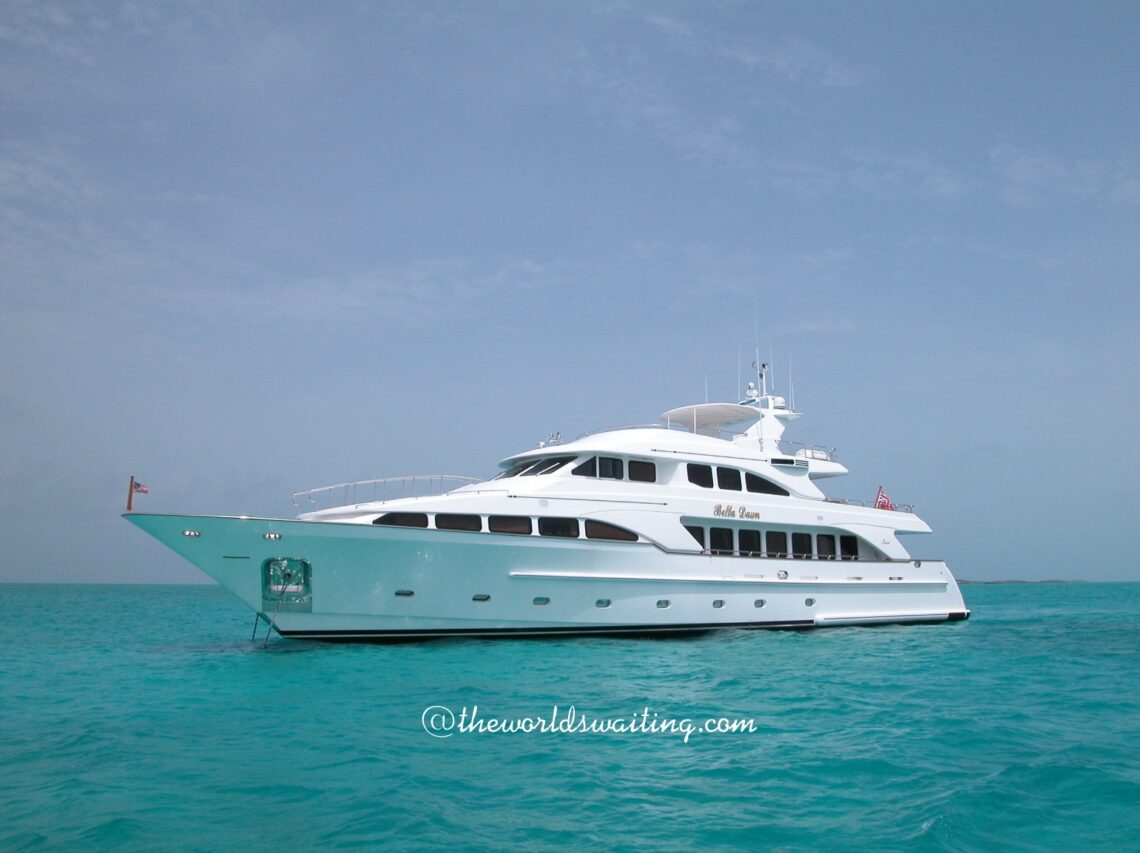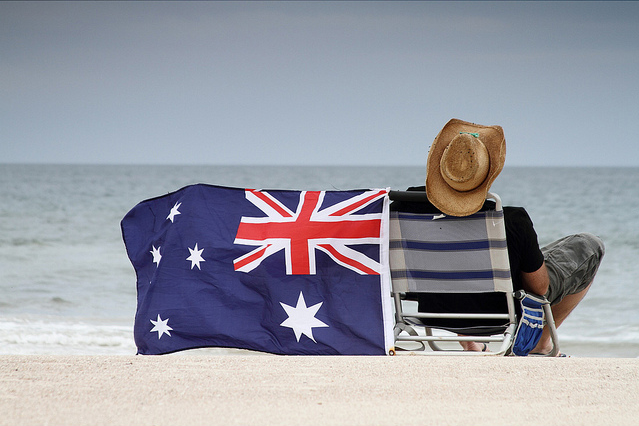
How to sail around the world on a luxury yacht
The yachting industry can seem, to an outsider, like a well-kept secret, but I’m going to let you in on it. Do you fancy the idea of sailing around the world on a luxury yacht? Want to know how to get paid to do it? Read on.
What do you do onboard a yacht?
The key things to understand are that yachts require maintenance and service standards are extremely high. Interior crew maintain the interior guest areas laundry and crew mess. Crew from the deck and engineering departments maintain the exterior and engine room, whilst also supervising guest use of toys (such as jetskis, waterskiing and scuba diving).

Pros and Cons
Pros:
- You travel to new and often remote locations
- Tax free wages (depending upon your citizenship and the flag of the yacht)
- You have nearly no living expenses, as the yacht provides food and toiletries
- You eat great food. There’s a chef onboard remember?
Cons:
- You work long hours and working 5.5 days a week is the industry standard
- You are virtually owned by the yacht and cannot choose or control when to take time off.
- You are working, Not on holiday, so the yacht may visit amazing places but you may not have time to explore them, which can be frustrating

What do I need to work on a yacht?
There are so many yachts out there, each with their own itinerary, making it very difficult to give a definite list of what you need. Here are some standard requirements of the industry, although you may come across a yacht requiring none of them:
- Passport – All yachts which travel will require you to have a passport
- STCW’95 – The STCW’95 is an entry level watch-keeping course and a requirement onboard yachts which offer charters
- CV – (or resume) highlighting any water-based activities

How do I get a job on a yacht?
There are a few yachting hotspots around the world, the obvious ones are Fort Lauderdale in Florida, Antibes in France and Palma in Spain. The Mediterranean season starts in April and the Caribbean season (Fort Lauderdale area) starts in October.
One way to get a job is to dress smartly and dockwalk, which means walking along the docks, approaching yachts and leaving your CV with them. Another method is to register with crew agencies (the recruitment agencies of the yachting world) Yachts often need casual workers (called dayworkers) to help prepare a yacht for the next trip when they have a tight turnaround, or to cover crew holiday, so it is worth telling the yachts you come across dockwalking, if you are available for daywork.
If you are prepared to work hard and make the personal sacrifices demanded by yachts, you will be well rewarded as you travel the world. Just make sure you don’t suffer from seasickness before embarking on this career option though!





12 Comments
Turkey's For Life
We’ve got a couple of friends who do that. They’ve just got married and have been really lucky getting work on the same yacht; steward and captain. They’ve been doing it for years and love it but then they love boats. We went dock walking with them last year in Turgutreis, near Bodrum but we were just there as company – not the job for us. 🙂
Julia
My recent post Turkish Food: Meze – It’s more than just a Starter
Liv
Hi Julia – Thanks for stopping by. Did you enjoy your faux dockwalking experience? ;o)
My recent post The Aussie Way
Steve
Great tips. I’ve always wondered what it would take to get one of these jobs. I’ bet it would be a rewarding and interesting experience to sail around the world on a yacht. Too bad I’m not a point in life where I can do this.
My recent post How I Traveled Long Term (And Kept My Job) Twice
Liv
Never say Never Steve!
My recent post Making Friends on the Great Barrier Reef
Vi@
But dayworkers are not getting on board when yacht is leaving port, right?
My recent post How to add more photos to the existing album on Facebook
Liv
Hi Vi – Dayworkers are temporary workers, so they are not normally on board when the yacht leaves port, unless they have been offered a job!
My recent post Life in an Old Queenslander
Colleen
Working on a yacht is a great way to travel, see the world and probably hone some great skills along the way. I met a guy who did that for a while. He loved every minute of it. I’m sure if i had some skills that would be of use on board, I would do it too.
My recent post I’ve Fallen in Love with Ft.Worth
Liv
Hi Colleen – it is a great way to see the world. You’d be surprised what sort of skills are handy too. You may be more qualified than you think!
My recent post Paris a Pied – Part 3
Jon
This is one of the things we’d would love to do when we have time and finances. The ability to create your own round the world travel experience is an amazing opportunity. So jelous of those who already have had the chance.
Liv
Hi Jon – You don’t need much by way of finances to get started, just enough to keep you going until you bag that first job!
My recent post 5 Towns to Visit on Your Next Daytrip to France
Boat Cruisers
Awesome post! We are a couple who volunteer on a yacht (currently cruising around central America)and yes the job is not easy but it’s worth it – I think its one of the best ways to travel and see the world 🙂
Liv
Thanks! Glad to hear you’re enjoying life on the ocean wave.
My recent post Magical ‘Must-See’ Halong Bay